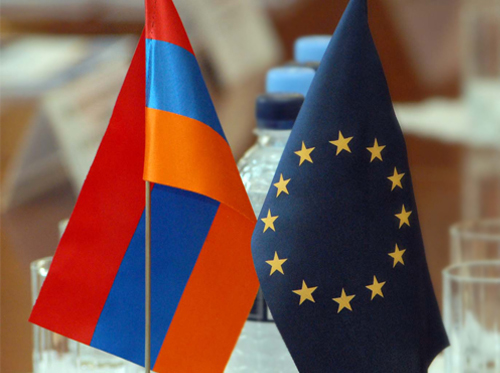By: Shahan Goenjian
 I have been keeping up with news coming out of Armenia and the international realm on a daily basis. It is part of my duties as an ANCA-WR Executive Intern. It is not a chore, but a pleasure rather. It has significantly raised my awareness of Armenian issues, not only in the United States but in Armenia and other diasporic communities. All this research has led me to notice one interesting trend in the last few weeks coming out of Armenia. The Armenian government is maturing.
I have been keeping up with news coming out of Armenia and the international realm on a daily basis. It is part of my duties as an ANCA-WR Executive Intern. It is not a chore, but a pleasure rather. It has significantly raised my awareness of Armenian issues, not only in the United States but in Armenia and other diasporic communities. All this research has led me to notice one interesting trend in the last few weeks coming out of Armenia. The Armenian government is maturing.
The government of Armenia has significantly increased its cooperation with foreign nations in the last year. Armenia has been hosting the leaders of several important government officials, including Austrian President Heinz Fischer, US Secretary of State Hilary Clinton, European Council President Herman van Rompuy, French Ambassador Henri Reynaud, OSCE Secretary General Lamberto Zannier, and Supreme People’s Court of the People’s Republic of China Grand Justice of the Second Rank, Jiang Bixin. The meeting with Austrian President took place to discuss possible business opportunities for Austrian companies in Armenia. Not only were relations between the two countries strengthened, but Heinz Fischer even payed a compliment to our nation, expressing, “As an Austrian I feel good in a country, where culture plays a significant role.” Furthermore, the visits by US Secretary of State Hilary Clinton and OSCE Secretary General were concerned with the rising Artsakh conflict. Both diplomats asserted that violence should be avoided. Armenian President Serzh Sargsyan emphasized the point that Armenian has been acting fully within the guidelines established by the Organization for Security and Co-Operation in Europe (OSCE). The meeting with the French Ambassador was friendly and diplomatic, and took place at the historic site of the ancient Erebuni Fortress.
Armenia has recently been praised for its democratic government operations as well. The European Union congratulated Armenia on the recent presidential elections. The Armenian government is continually making an effort to modernize. In the last month, the Organization for Security and Co-Operation in Europe set up a workshop to train Armenian lawyers and third party groups in more modern Western law practices, such as the filing of amicus curiae briefs which work to supplement relevant information in legal court cases. The government has also adopted certain bureaucratic practices, like the public notary model, from some Latin American countries. Armenia is also set to form a fund for humanitarian cooperation with Russia for the years 2013-2016. This joint effort aims to modernize Armenian legislature in return for continued business cooperation between the two. Even China and Armenia have strengthened their ties and are on friendly, cooperative terms. Not only are diplomatic relations deepening, but China has also donated the largest amount of humanitarian aid to Armenia this year. Armenia has received $14 million and also 249 buses from China.
These positive foreign relations are invaluable. The Armenian government is making a real effort to modernize according to Western standards, while at the same time strengthening ties with major powers in East Asia. This type of progress could be key to gaining international support that may help Armenia if foreign conflicts arise, especially with Azerbaijan.
